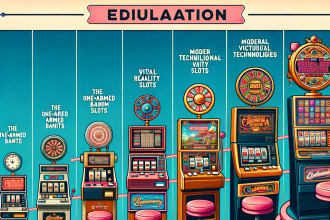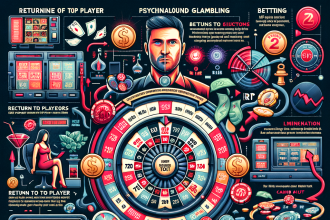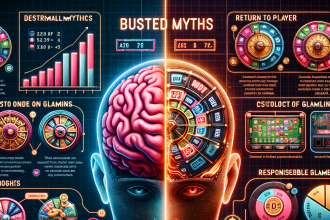With the rise of digital entertainment, online casinos have surged in popularity, offering players the convenience of gambling from the comfort of their homes. However, this accessibility also raises questions about the integrity of these platforms. Are online casinos rigged? How can players determine if a game is fair? This article delves into the legitimacy of online casinos and outlines key indicators to help players assess fairness in online gaming.
Understanding the Legitimacy of Online Casinos: A Critical Analysis
The legitimacy of online casinos is a multi-faceted issue that encompasses regulatory frameworks, licensing authorities, and the technology behind game fairness. Regulatory bodies play a crucial role in ensuring that online casinos operate within legal parameters. Various jurisdictions, such as Malta, Gibraltar, and the United Kingdom, impose stringent regulations that licensed casinos must adhere to. These regulations often include random number generator (RNG) testing, financial audits, and player protection measures.
One of the first steps in assessing the legitimacy of an online casino is to check for its licensing information. A reputable casino will prominently display its license details on its website. Players should look for licenses from respected authorities; for instance, the UK Gambling Commission and the Malta Gaming Authority are recognized for maintaining high standards. If a casino lacks a valid license or the information is difficult to find, it raises red flags regarding its legitimacy.
Another crucial aspect to consider is the technology employed by online casinos. The most reputable sites utilize advanced encryption methods to protect user data and transactions, ensuring a secure environment. Furthermore, they employ RNG technology to guarantee that game outcomes are fair and unbiased. Players should inquire about the certification of these RNGs from independent testing agencies like eCOGRA or iTech Labs, which conduct rigorous assessments to ensure the games are not manipulated.
Key Factors to Consider
- Licensing and Regulation: Always check for a valid license from a reputable authority.
- Security Measures: Look for SSL encryption and other security protocols.
- Third-Party Testing: Confirm if the games have been tested by independent agencies.
For instance, a table summarizing the top licensing authorities and their features could help players quickly assess the credibility of an online casino:
| Licensing Authority | Country | Key Features |
|---|---|---|
| UK Gambling Commission | United Kingdom | Strong player protections, regular audits |
| Malta Gaming Authority | Malta | Comprehensive regulations, fair play focus |
| Gibraltar Regulatory Authority | Gibraltar | High standards, independent oversight |
In summary, understanding the legitimacy of online casinos involves examining their licensing, security measures, and the technology used to ensure fair play. Being informed about these elements helps players make educated choices, minimizing the risk of falling victim to unscrupulous operators.
Identifying Fairness in Online Games: Key Indicators to Watch
Once players have determined the legitimacy of an online casino, the next step is to evaluate the fairness of the games offered. Fairness can be assessed through several key indicators, including payout percentages, game volatility, and user reviews.
Payout percentages, or return-to-player (RTP) rates, are crucial in determining the fairness of casino games. RTP is the percentage of wagered money that a game is programmed to return to players over time. A higher RTP indicates a better chance for players to win in the long run. Players should look for games with an RTP of 95% or higher as a general benchmark for fairness.
Examples of Payout Percentages:
- Slots: Often range from 85% to 98%, with many popular titles offering RTPs above 95%.
- Table Games: Games like blackjack and baccarat typically have RTPs of 98% or more.
- Live Dealer Games: Generally offer RTPs similar to their virtual counterparts.
Another critical factor is game volatility. High volatility games may offer larger payouts but less frequent wins, while low volatility games provide more consistent, smaller wins. Understanding a game’s volatility can help players choose games that align with their risk tolerance and playing style.
Lastly, user reviews and community feedback can provide invaluable insights into the fairness of online games. Players should seek out forums, social media groups, and review sites to gauge the experiences of others. Consistent reports of unfair practices or unresponsive customer service can indicate deeper issues within the casino or its games.
Key Indicators of Fair Online Games
- Return-to-Player (RTP) Percentages: Look for games with high RTP rates (ideally 95% or higher).
- Game Volatility: Assess your risk tolerance and select games accordingly (high vs. low volatility).
- Community Feedback: Use player reviews and forums to gather experiences and opinions.
In conclusion, determining if a game is fair hinges not only on examining RTP, volatility, and community feedback but also on understanding the broader context of how online casinos operate. A well-rounded approach, incorporating both statistical measures and user insights, ensures players are better equipped to make informed choices.
Conclusion
The question of whether online casinos are rigged is complex, but understanding the legitimacy of these platforms and the indicators of fairness can empower players. By focusing on licensing, security, technology, payout percentages, game volatility, and community feedback, players can navigate the online gaming landscape with greater confidence.
As the online casino industry continues to evolve, remaining vigilant and informed is essential. Players must take an active role in researching and assessing the platforms they choose to ensure a safe and enjoyable gaming experience. While the allure of instant gratification and entertainment is tempting, nothing replaces the peace of mind that comes from playing at a legitimate and fair online casino.











